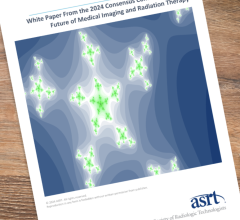
January 10, 2018 — The Centers for Medicare & Medicaid Services (CMS) Center for Medicare and Medicaid Innovation (Innovation Center) announced the launch of a new voluntary bundled payment model called Bundled Payments for Care Improvement Advanced (BPCI Advanced). Under traditional fee-for-service payment, Medicare pays providers for each individual service they perform. Under this bundled payment model, participants can earn additional payment if all expenditures for a beneficiary’s episode of care are under a spending target that factors in quality.
Bundled payments create incentives for providers and practitioners to work together to coordinate care and engage in continuous improvement to keep spending under a target amount. BPCI Advanced Participants may receive payments for performance on 32 different clinical episodes, such as major joint replacement of the lower extremity (inpatient) and percutaneous coronary intervention (inpatient or outpatient). An episode model such as BPCI Advanced supports healthcare providers who invest in practice innovation and care redesign to improve quality and reduce expenditures.
Of note, BPCI Advanced will qualify as an Advanced Alternative Payment Model (Advanced APM) under the Quality Payment Program (QPP). In 2015, Congress passed the Medicare Access and Chip Reauthorization Act (MACRA). MACRA requires CMS to implement the QPP, which changes the way physicians are paid in Medicare. QPP creates two tracks for physician payment – the Merit-Based Incentive Payment System (MIPS) track and the Advanced APM track. Under MIPS, providers have to report a range of performance metrics and then have their payment amount adjusted based on their performance. Under Advanced APMs, providers take on financial risk to earn the Advanced APM incentive payment.
“CMS is proud to announce this administration’s first Advanced APM,” said CMS Administrator Seema Verma. “BPCI Advanced builds on the earlier success of bundled payment models and is an important step in the move away from fee-for-service and towards paying for value. Under this model, providers will have an incentive to deliver efficient, high-quality care.”
In BPCI Advanced, participants will be expected to redesign care delivery to keep Medicare expenditures within a defined budget while maintaining or improving performance on specific quality measures. Participants bear financial risk, have payments under the model tied to quality performance, and are required to use Certified Electronic Health Record Technology. By meeting these requirements, the model qualifies as an Advanced APM. The 32 types of clinical episodes in BPCI Advanced add outpatient episodes to the inpatient episodes that were offered in the Innovation Center’s previous bundled payment model (the Bundled Payments for Care Improvement initiative), including percutaneous coronary intervention, cardiac defibrillator, and back and neck except spinal fusion.
CMS designed this model taking into account rigorous evaluation results from previous CMMI models, industry experience with bundled payment and stakeholder input from healthcare providers at acute care hospitals, physician group practices, and other providers and suppliers. BPCI Advanced seeks to support and encourage participants who are interested in:
- Continuously redesigning and improving care;
- Decreasing costs by eliminating care that is unnecessary or provides little benefit to patients;
- Encouraging care coordination and fostering quality improvement;
- Participating in a payment model that tests extended financial accountability for the outcomes of improved quality and reduced spending;
- Creating environments that stimulate rapid development of new evidence-based knowledge; and
- Increasing the likelihood of better health at lower cost through patient engagement, education, and ongoing communication between doctors and patients.
The Model Performance Period for BPCI Advanced starts on Oct. 1, 2018 and runs through Dec. 31, 2023. Like all models tested by CMS, there will be a formal, independent evaluation to assess the quality of care and changes in spending under the model.
For more information about the model and its requirements, or to download a Request for Applications document (RFA), the application template and the necessary attachments, visit https://innovation.cms.gov/initiatives/bpci-advanced. Applications must be submitted via the Application Portal, which will close on 11:59 p.m. EST on March 12, 2018. Applications submitted via email will not be accepted.
The CMS Innovation Center will hold a Q&A Open Forum on Tuesday, Jan. 30, 2018 from 12 pm – 1 pm EDT. This event is open to those who are interested in learning more about the model and how to apply. Those interested may register in advance here.
Read the article "CMS Announces Final Changes, Cancellations of Mandatory Bundled Payment Models"
For more information: www.cms.gov


 July 30, 2024
July 30, 2024 








